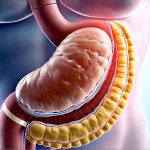The liver, often called the workhorse of our bodies, quietly performs hundreds of essential functions vital for life. From detoxifying harmful substances and processing nutrients to producing bile for digestion and storing glycogen for energy, its responsibilities are vast and continuous. Many people don’t give their liver much thought until a problem arises, but proactive liver health maintenance is crucial because the liver has an incredible capacity to regenerate – however, this regeneration isn’t limitless, and chronic damage can eventually overwhelm its restorative abilities. Ignoring early warning signs or delaying check-ups can lead to serious, even life-threatening conditions.
This article will explore why regular check-ups are so important for maintaining optimal liver health. We’ll delve into the silent nature of many liver diseases, the types of screening available, and how lifestyle choices impact your liver’s well-being. Understanding these aspects empowers you to take control of your health and prioritize this indispensable organ. It is vital to remember that early detection and intervention are often key to successful management of liver conditions, potentially preventing progression to severe disease stages.
The Silent Threat: Why Regular Liver Check-Ups Matter
The liver is remarkable in its ability to continue functioning even when significantly damaged. This means many liver diseases progress silently for years, with individuals experiencing no noticeable symptoms until the condition is advanced. This “silent” nature is a major reason why regular check-ups are so important – they can detect problems before symptoms develop and treatment becomes more challenging. Consider these points:
- Many common causes of liver disease, such as non-alcoholic fatty liver disease (NAFLD), often have no early warning signs.
- Symptoms like fatigue, jaundice (yellowing of the skin or eyes), and abdominal pain are usually indicators of significant damage already present.
- Early detection allows for lifestyle modifications and medical interventions that can slow or even reverse some forms of liver damage.
Regular check-ups aren’t just about identifying disease; they’re also about risk assessment. Your doctor will evaluate your personal risk factors, such as family history, alcohol consumption, medication use, and existing health conditions (like diabetes), to determine the appropriate screening schedule for you. This personalized approach ensures that you receive the care tailored to your specific needs. Ignoring this preventative step can have devastating consequences.
Furthermore, proactive monitoring allows for timely intervention when liver enzymes are elevated – a sign of potential stress or damage. While elevated enzymes don’t necessarily mean you have liver disease, they warrant further investigation and often prompt lifestyle changes that improve overall health. This preventative approach is far more effective than waiting for noticeable symptoms to appear and then attempting to manage an already established condition.
Understanding Liver Screening & Diagnostic Tests
There isn’t a single “liver check-up” but rather a collection of tests used to assess liver function and identify potential problems. These range from simple blood tests to more advanced imaging procedures. A typical screening might begin with:
- Liver Function Tests (LFTs): These blood tests measure the levels of various enzymes and proteins in your blood, providing an indication of how well your liver is working. Common LFTs include ALT, AST, ALP, bilirubin, and albumin.
- Physical Examination: A doctor will check for signs of liver disease during a physical exam, such as jaundice, abdominal swelling, or tenderness.
- Review of Medical History & Lifestyle: Your doctor will ask about your medical history, alcohol consumption, medication use (including over-the-counter drugs and supplements), and family history of liver disease.
If LFTs are abnormal or if you have risk factors for liver disease, further diagnostic testing may be necessary. These tests can include:
- Imaging Tests: Ultrasound, CT scans, and MRI can provide detailed images of your liver to identify structural abnormalities, such as tumors or fatty deposits.
- Liver Biopsy: This involves taking a small sample of liver tissue for examination under a microscope. It is typically used to diagnose more complex conditions or determine the extent of liver damage.
It’s important to discuss with your doctor which tests are appropriate for you based on your individual risk factors and health status. These diagnostic tools help healthcare professionals accurately assess the condition of the liver, guide treatment decisions and monitor progress over time. Don’t hesitate to ask questions about any test or procedure you don’t understand.
Lifestyle Factors Impacting Liver Health
Your lifestyle plays a huge role in the health of your liver. Certain habits can put excessive strain on this vital organ, increasing the risk of disease, while others actively support its function. Here’s how:
- Alcohol Consumption: Excessive alcohol consumption is a leading cause of alcoholic liver disease, ranging from fatty liver to cirrhosis. Reducing or eliminating alcohol intake is crucial for protecting your liver.
- Diet and Weight Management: A diet high in processed foods, sugar, and saturated fats can contribute to NAFLD. Maintaining a healthy weight through balanced nutrition and regular exercise is vital. Aim for a diet rich in fruits, vegetables, whole grains, and lean protein.
- Medication & Supplement Use: Some medications (even over-the-counter ones) and supplements can be toxic to the liver. Always discuss your medication list with your doctor and avoid self-treating with unregulated supplements.
Recognizing Risk Factors for Liver Disease
Certain individuals are at higher risk of developing liver disease than others. Being aware of these risk factors allows you to be more proactive about your health and seek early screening if necessary:
- Family History: Having a family history of liver disease increases your risk, suggesting a genetic predisposition.
- Viral Hepatitis: Chronic infections with hepatitis B or C can lead to cirrhosis and liver cancer. Screening for these viruses is essential, especially if you have risk factors like intravenous drug use or unprotected sex.
- Obesity & Diabetes: These conditions are strongly linked to NAFLD, which is becoming increasingly prevalent.
Proactive Steps You Can Take Today
Taking control of your liver health doesn’t require drastic changes – small, consistent steps can make a significant difference. Here’s how you can proactively support your liver:
- Maintain a Healthy Diet: Focus on whole, unprocessed foods and limit sugar intake.
- Exercise Regularly: Aim for at least 30 minutes of moderate-intensity exercise most days of the week.
- Limit Alcohol Consumption: If you drink alcohol, do so in moderation (one drink per day for women, two drinks per day for men). Or better yet, eliminate it entirely.
- Get Vaccinated: Protect yourself against hepatitis A and B through vaccination.
- Schedule Regular Check-Ups: Discuss your risk factors with your doctor and establish a screening schedule that’s right for you. This includes regular blood tests to monitor liver enzyme levels. Prioritizing these simple steps can dramatically improve your long-term health.


















